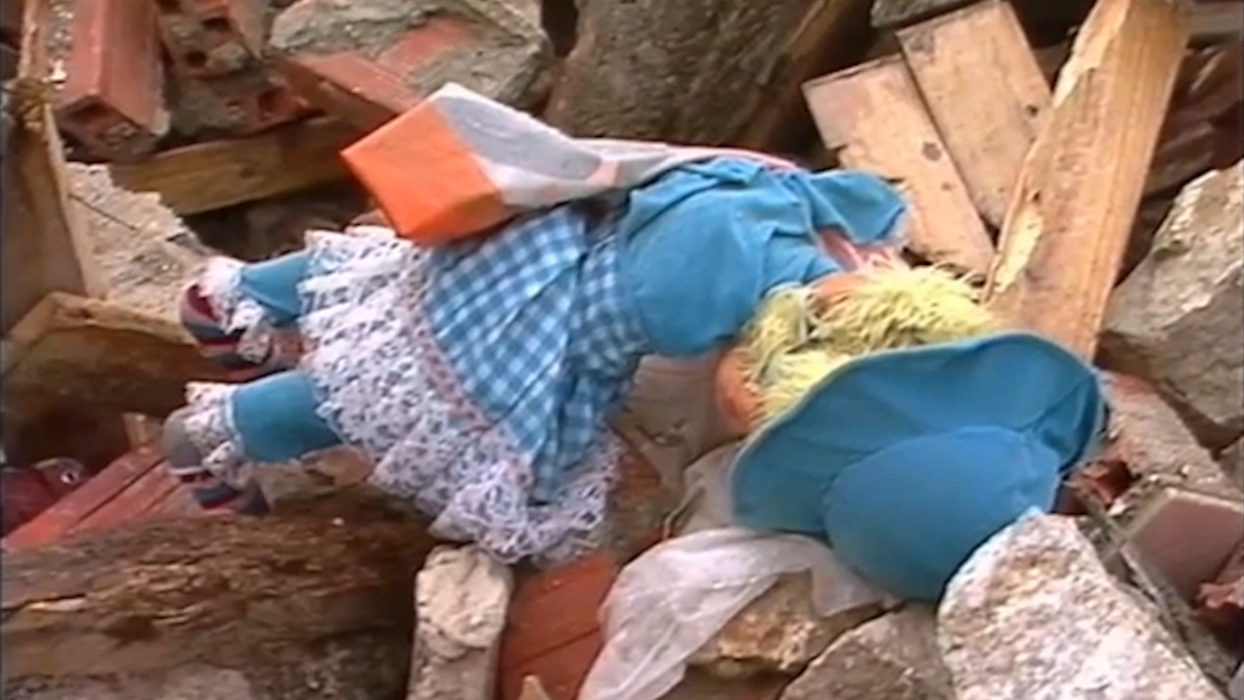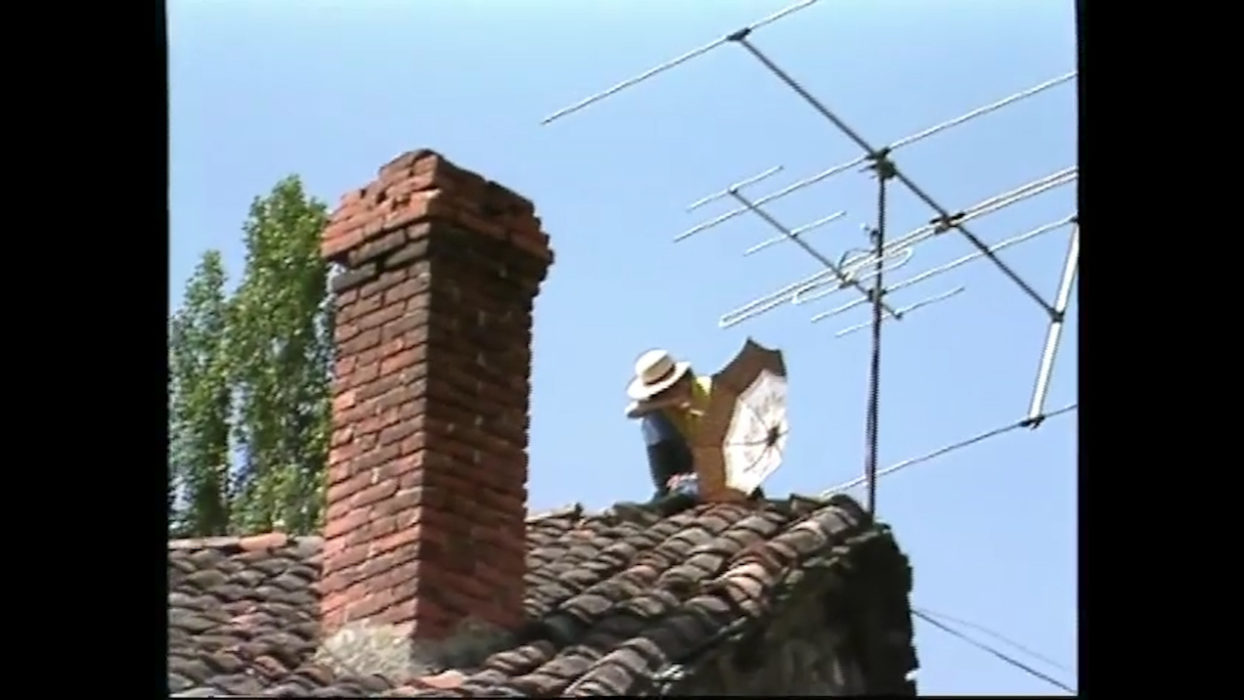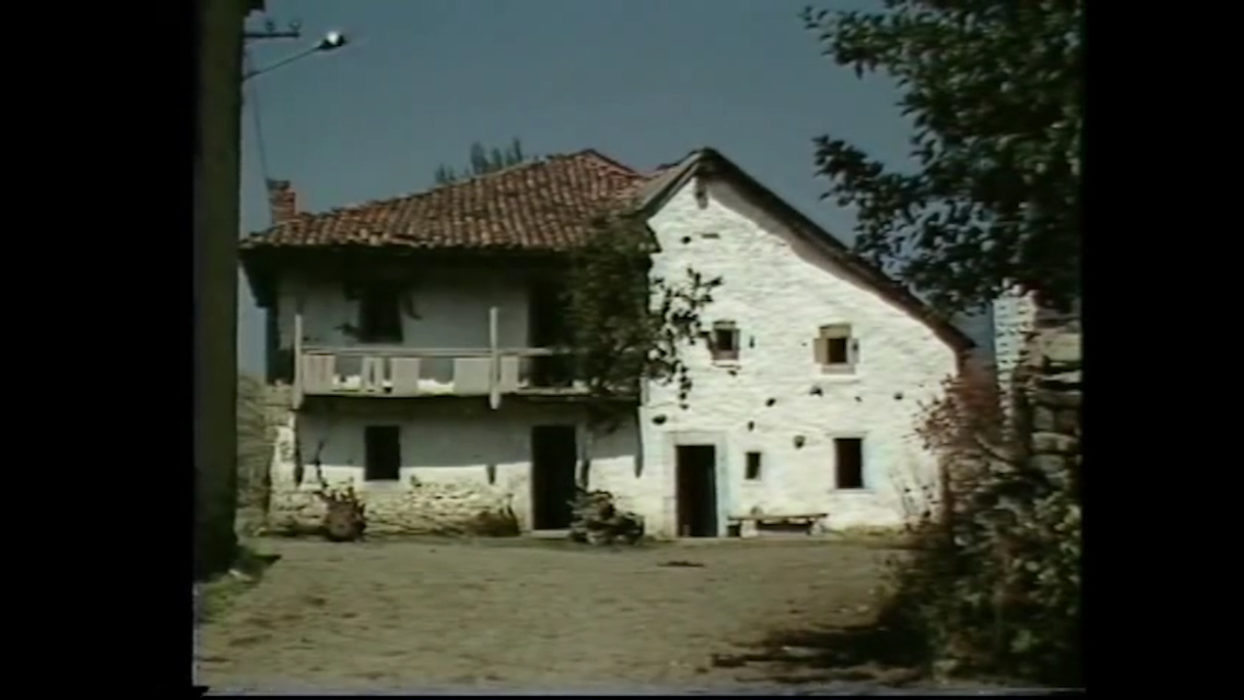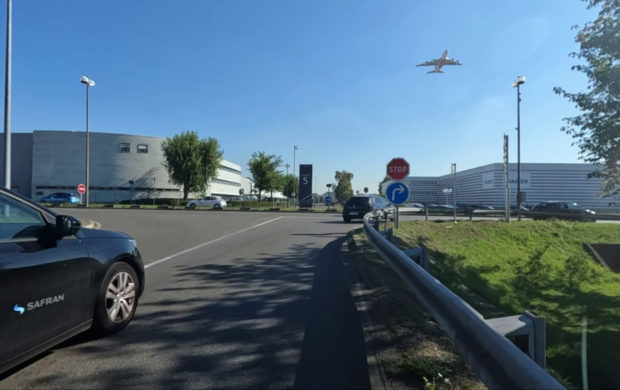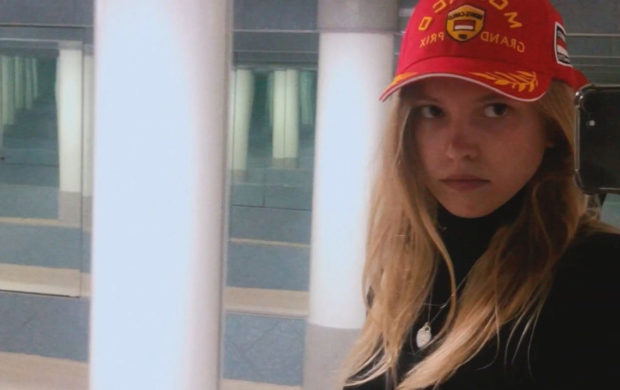Vuelta a Riaño
Moving images shot from the ground against moving images shot from the sky. The words of women, men and children against official speeches. People who don’t want to move, “just like the pine tree by the riverbank”. A valley turned into a reservoir. Class struggle lies underground… and underwater.
Once a small town located on the banks of the Esla River in the autonomous community of Castile and León, Riaño was flooded on December 31, 1987—along with other villages and adjoining farmland—following the construction of a dam and a reservoir. Miriam Martín’s film, which investigates the site and its history, is made up of material taken from various online sources. During the Vuelta 2022, a peloton bolts down a motorway that stretches across a majestic high-mountain landscape. Herds of horses run around freely, scattering in all directions—possibly running to escape the helicopter that films them. The film cuts back to the cyclists as they make their way along the newly levelled mountainside surrounding the lake. In this way, compounding the glaring bleakness of the barren landscape, the film’s editing hampers the forward march of this triumphant parade. Voices from the past emerge, expressing their desire to safeguard a place of which nothing is left, while photographs and videos bear witness to the memorable mobilizations that saw locals stand up to police forces sent to carry out their grim task. The celebration of a feat—relocating an old church “stone after stone” on higher ground, praised by consistently flippant TV reports—begins to fall apart as it is made to resonate with the memory of sheer destruction. The sense of dismay, irony, and outrage that infuses the dovetailing of past and present spares Martín the need to capture new images. She may not even be making or directing anything, as the wording of the credits suggests. Instead, she may be merely exercising “a right of reply” on behalf of nature and cinema.
Antoine Thirion
Miriam Martín has dedicated her entire adult life and part of the previous one to cinema. First as a spectator, then as a programmer in several institutions: Museo Reina Sofía, MUSAC, CA2M, La Casa Encendida or the international documentary film festival Punto de Vista. For almost six years she organised the Chantal film club, a weekly aesthetic and political experiment. In 2019, she made a film and called it ‘La espada me la ha regalado’. She also sings, translates and writes, and even curated an exhibition on 15M movement and the Paris Commune at the Museo Reina Sofía, ‘Con h minúscula’.
